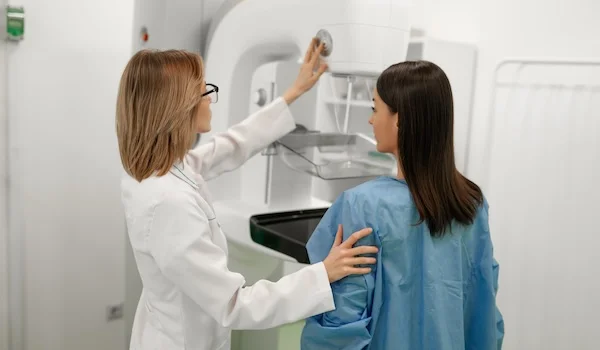 Doing estrogen replacement in menopause was vilified by a Women’s Health Initiative Study years ago, where we were told it causes breast cancer. For 20 years no women did hormone replacement after menopause because of it. But we know now the WHI study interpretations were flawed.
Doing estrogen replacement in menopause was vilified by a Women’s Health Initiative Study years ago, where we were told it causes breast cancer. For 20 years no women did hormone replacement after menopause because of it. But we know now the WHI study interpretations were flawed.
Does hormone replacement increase your risk of breast cancer?
First, you need to see what you mean by hormone replacement. Is it estrogen alone? Estrogen and progesterone (which you need to do if you still have a uterus)?
If you read the estrogen lobby, they will state there is no increased risk. They bring up good points of looking at relative risk vs. absolute numbers. If a study says a 200% increase, that is alarming! But what are the actual numbers? If it went from 1 in 10,000 patients to 2 in 10,000 patients, the increased risk is actually trivial. You need to be careful of spin and data mining, where they look at data retrospectively to try to find something significant. They can distort data by picking specific subgroups to analyze.
There are studies though (cited below) where they do seem to find a slight increased risk for breast cancer.
So what should you do?
First, you need to think about your body as a whole. Breast cancer is one facet, but so it your risk of heart disease (still the number one killer of women), dementia, bone density, sleep quality, mood and depression, weight, and more. Hormone replacement has been shown to lower risks in all of those areas.
Second, if you do not have a uterus (have had a hysterectomy), you do not need to do progesterone and estrogen together- you can do estrogen alone. Oddly estrogen alone LOWERS your risk of breast cancer.
Third, what is YOUR risk of breast cancer? Do you have dense breasts? Did you have pregnancies? At what age? How many? Did you breastfeed? Do you have a family history of breast cancer? Do a breast cancer risk calculator here
There does seem to be a slight increased risk. A JAMA article from 2020, “Association of Menopausal Hormone Therapy With Breast Cancer Incidence and Mortality During Long-term Follow-up of the Women’s Health Initiative Randomized Clinical Trials,” concludes there IS a statistical increased risk for breast cancer in those who take estrogen/progesterone HRT, but no increased mortality. The increased risk of breast cancer annualized incidence was 0.45% vs 0.36%. Again if estrogen only (no uterus), they show a decreased risk of breast cancer, annualized incidence, 0.30% vs 0.37% and lower breast cancer mortality, annualized mortality, 0.031% vs 0.046%.
There are studies which advocate for HRT in breast cancer patients. Published in May 2022 in Cancer, “Hormone Replacement Therapy After Breast Cancer: It Is Time” advocates the other benefits to heart, brain, bones, and longevity of HRT. After looking at decades of studies of HRT in women who have had breast cancer and thus are at the highest risk, “Only 1 of the 25 studies, the HABITS trial, demonstrated an increased risk of recurrence, which was limited to local or contralateral, and not distant, recurrence. None of the studies, including HABITS, reported increased breast cancer mortality associated with HRT.”
So what should you do?
This is not a clear cut answer.
- What is your risk for heart disease? Osteoporosis? Dementia? Breast cancer?
- How symptomatic are you in menopause?
- What is your risk tolerance?
- Are you getting yearly mammograms and ultrasounds/MRIs?
- Have you done genetic testing? We like our Natera genetic testing which looks for BRCA and other genetic predispositions to cancer. Figure out if you are at higher risk by coming in and getting the test. Natera
Medical citations:
- JAMA breast cancer risk with HRT link
- HRT for breast cancer patients link
- There are a multitude of studies published on this topic. There is controversy here, as breast cancer is not your only health risk. If your risk for heart disease is high, do you focus on that or your breast? To see more studies look here link